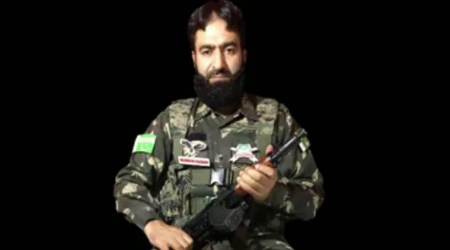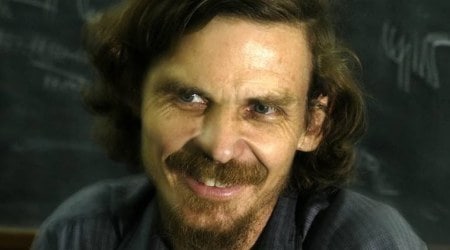 Prime Minister Narendra Modi (Source: Reuters Photo)
Prime Minister Narendra Modi (Source: Reuters Photo)
Commemorating India’s 70th Independence Day, Prime Minister Narendra Modi will address the nation from the ramparts of the Red Fort for the fourth time on Tuesday. The prime minister has invited all citizens to share their ideas for his annual Independence Day speech through his personal app or the e-governance portal, insisting that he would be the medium who would represent the voice and dreams of the entire nation. And, as the nation eagerly awaits for his speech, here is a look at what he had said during his previous three addresses.
67th Independence Day, 2014
In his first Independence Day speech, PM Modi had refrained from the tone he set during his election campaigning and promised a renewed connection between the government and citizens while unveiling his vision. Reaching out to people, Modi described himself as the “Pradhan Sevak” of the country who wanted to “govern by consensus” and not on the basis of the majority in Parliament. In a departure from his predecessors, Modi shunned the bullet-proof shield to address the nation.
Calling the rising case of rape as something that makes “our heads hang in shame”, Modi had asked parents to rein in their sons to check incidents of rape. He also called for an end to the discrimination against the girl child and declared a cleanliness drive across the country as a birthday present to Mahatma Gandhi.
Modi further stressed that nation-building could not be left to the government alone and that citizens needed to contribute equally to the collective sense of duty and responsibility. He also admitted that he was aghast by the disunity and infighting between government departments.
He then called upon global manufacturers to “come and make in India” in order to boost its industrial growth with their investment. He also stated that his government was committed to transforming the country into “Digital India with e-governance which is easy governance, economical governance and effective governance”. He declared that the Planning Commission would be replaced by a new institution.
Modi had announced the Pradhan Mantri Jan Dhan Yojana, aimed at providing poor families with a bank account, a debit card and an insurance amount of Rs one lakh. He also laid emphasis on Skill India exercise and insisted that the initiative would be undertaken to provide skills for employment.
68th Independence Day, 2015
Unlike 2014, there were hardly any big announcements and schemes in 2015. PM Modi was more eager to shed light on his achievements, the promises he has delivered on, and the actions he has taken. Aimed at supporting people to start new ventures and businesses, especially from the weaker sections, Modi coined a new slogan–“Start-up India, Stand up India” and called upon banks to provide loans to tribals and dalits.
 Right at the start of his speech, Modi warned against the danger of casteist and communal tendencies disrupting India’s development. (Source: Express photo by Neeraj Priyadarshi)
Right at the start of his speech, Modi warned against the danger of casteist and communal tendencies disrupting India’s development. (Source: Express photo by Neeraj Priyadarshi)
Warning against the danger of casteist and communal tendencies in the country, Modi said, “We must overpower them with the nectar of development.” His assurance of giving electricity to every village in the country in the next 1,000 days and his desire to abolish interviews for junior-level jobs were among the promises that stood out in his speech.
He also said his government had agreed with One-Rank-One-Pension formula “in-principle” and that some details were yet to be finalised. His one-and-a-half hour speech, for the most part, was a progress report of his government’s initiatives such as the Jan Dhan Yojana, Swachh Bharat Abhiyan, toilets in schools, low-cost insurance schemes, crackdown on corruption and black money.
Laying emphasis on the issue of corruption, Modi went on to elaborate how each of his schemes or actions–auction of natural resources, direct transfer of subsidies, MNREGA wages and scholarships, a new law on black money–was an attempt towards eliminating the menace of corruption. He also declared that the Ministry of Agriculture would be rechristened as the Ministry of Agriculture and Farmer Welfare with an aim to reflect the fact that it will also be making policies in the interest of farmers.
69th Independence Day, 2016
In a move that was described as the political masterstroke, PM Modi mentioned human rights violations in Pakistan’s Balochistan region during his third Independence Day speech. His remarks were viewed as a retaliation to Pakistan’s strategy of attracting international attention to the situation in Kashmir. His comments attracted condemnation from Islamabad which claimed this “only proves Pakistan’s contention that India, through its main intelligence agency Research and Analysis Wing, has been fomenting terrorism in Balochistan”.
 PM Narendra Modi waves from Red Fort during his speech Monday, his third on Independence Day from the same venue. (Source: Renuka Puri)
PM Narendra Modi waves from Red Fort during his speech Monday, his third on Independence Day from the same venue. (Source: Renuka Puri)
The prime minister also criticised Pakistan over its utterances on Kashmir and its attempt to “glorify terrorists” like Hizbul Mujahideen’s Burhan Wani who was killed by security forces last year.
Modi, whose government came under intense scrutiny from the Opposition over atrocities on Dalits, stressed that a society divided between low and high and by untouchability cannot sustain and called for “harsh but sensitive treatment” to address such “centuries-old evils”. He also pointed out the assimilation was the reason that the Indian civilisation has persisted till now.
He also shed light on his government works towards achieving good governance, fighting corruption and bringing accountability. He criticised the previous dispensation for being lethargic in implementing development projects.
His announcements included mulling a proposal for a 20 per cent hike in pension for freedom fighter families, a plan to build a museum in memory of tribal freedom fighters, and a decision to bear the treatment expenses of poor families up to Rs 1 lakh.

